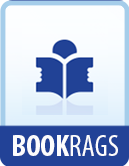Possibly, indeed, he has escaped a grave danger; for if, in the impressionable period of youth, attention is given to one kind of knowledge, it may very likely be withdrawn from another. A life of sheltered study does not allow a boy to learn the hard facts of the world—and business is concerned with reality. The truth is that education is the fruit of temperament, not success the fruit of education. What a man draws into himself by his own natural volition is what counts, because it becomes a living part of himself. I will make one exception in my own case—the Shorter Catechism, which was acquired by compulsion and yet remains with me.
My own education was of a most rudimentary description. It will be difficult for the modern English mind to grasp the parish of Newcastle, New Brunswick, in the ’eighties—sparse patches of cultivation surrounded by the virgin forest and broken by the rush of an immense river. For half the year the land is in the iron grip of snow and frost, and the Miramichi is frozen right down to its estuary—so that “the rain is turned to a white dust, and the sea to a great green stone.”
It was the seasons which decided my compulsory education. In the winter I attended school because it was warm inside, and in the summer I spent my time in the woods because it was warm outside.
Perhaps the most remarkable instance of what self-education can do is to be found in the achievements of Mr. J.L. Garvin. He received no formal education at all in the public school or university sense, and he began to work for his living at an early age. Yet, not only is he, perhaps, the most eminent of living journalists, but his knowledge of books is, if not more profound than that of any other man in England, certainly wider in range, for it is not limited to any country or language. By his own unaided efforts he has gained not only knowledge, but style and judgment. To listen to his talk on literature is not merely to yield oneself to the spell of the magician, but to feel that the critic has got his estimate of values right.
Reading, indeed, is the real source both of education and of style. Read what you like, not what somebody else tells you that you ought to like. That reading alone is valuable which becomes part of the reader’s own mind and nature, and this can never be the case if the matter is not the result of self-selection, but forced on the student from outside.
Read anything and read everything—just as a man with a sound digestion and a good appetite eats largely and indifferently of all that is set before him. The process of selection and rejection, or, in other words, of taste, will come best and naturally to any man who has the right kind of brains in his head. Some books he will throw away; others he will read over and over again. My education owes much to Scott and Stevenson, stealthily removed from my father’s library and read in the hayloft when I should have been in school.




